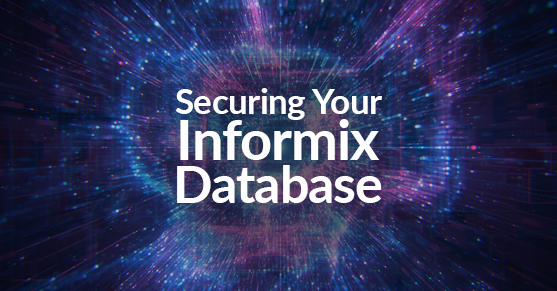Database security is a crucial aspect of any organization’s IT infrastructure, as it plays a vital role in protecting sensitive data and ensuring compliance with various regulations. Informix, a powerful and scalable database management system, requires diligent attention to security to safeguard the valuable information it contains. In this blog post, we will provide a comprehensive guide to securing Informix databases, including best practices for user access control, data encryption, and regular security audits. By implementing these security best practices, organizations can minimize the risk of unauthorized access, data breaches, and other security incidents affecting their Informix databases.
1. User Access Control
Controlling who has access to your Informix database and what actions they are allowed to perform is a fundamental principle of database security. Implementing strong user access controls can help prevent unauthorized access and minimize the risk of data breaches. Some best practices for controlling user access in Informix databases include:
- Enforce the principle of least privilege: Grant users the minimum level of access necessary to perform their job functions, and nothing more.
- Use roles for managing permissions: Create roles that represent different job functions and assign appropriate privileges to each role. Assign users to roles rather than granting them individual privileges.
- Implement strong authentication methods: Require users to authenticate using strong credentials, such as multi-factor authentication (MFA), to reduce the risk of unauthorized access.
- Regularly review and audit user access: Periodically review user accounts and privileges to ensure that only authorized individuals have access to the database. Remove or modify access for users who no longer require it.
2. Data Encryption
Encrypting sensitive data stored in Informix databases is an essential security measure that can help protect against unauthorized access and data breaches. Informix offers several encryption options, including Transparent Data Encryption (TDE) and column-level encryption. Some best practices for implementing data encryption in Informix databases include:
- Encrypt sensitive data at rest: Use TDE to encrypt entire tablespaces or column-level encryption for specific columns containing sensitive information.
- Encrypt data in transit: Enable network encryption to protect data as it travels between the database and client applications.
- Manage encryption keys securely: Store and manage encryption keys separately from the database, using solutions like IBM Key Protect or other key management systems, to ensure they are not compromised.
3. Regular Security Audits
Performing regular security audits is a critical component of maintaining a secure Informix database environment. Security audits help identify potential vulnerabilities and areas for improvement, ensuring that your database remains protected against emerging threats. Some best practices for conducting security audits on Informix databases include:
- Develop a security audit plan: Establish a comprehensive plan for conducting regular security audits, including the scope of the audit, the frequency of audits, and the individuals responsible for conducting the audit.
- Utilize auditing tools: Use Informix’s built-in auditing features, such as the Informix Auditing Facility, as well as third-party tools like IBM Security Guardium, to collect and analyze audit data.
- Review and act on audit findings: Carefully review the findings of each security audit and take appropriate action to address any identified vulnerabilities or areas for improvement.
Conclusion
Securing your Informix database is an ongoing process that requires diligent attention to user access control, data encryption, and regular security audits. By implementing these best practices, organizations can significantly reduce the risk of unauthorized access, data breaches, and other security incidents affecting their Informix databases. As cyber threats continue to evolve, it’s essential to stay informed and adapt your security strategies accordingly to protect your valuable data and maintain compliance with regulatory requirements. With a proactive approach to database security, organizations can safeguard their Informix databases and ensure the integrity and confidentiality of their sensitive information.
For more information, please contact us!

